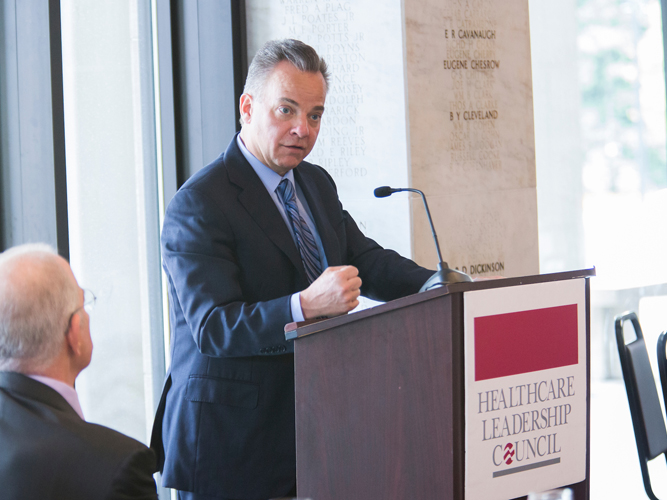Many of the faculty at the Fuqua School of Business, and throughout Duke University, are recognized internationally as innovative thought leaders and researchers across the health care spectrum. In addition to Health Sector Management (HSM) and Fuqua, many hold appointments with the Duke schools of medicine, law, public policy, environment and engineering, and are affiliated with a variety of health-related organizations worldwide.
David Ridley: Experience with an Innovation Incentive

The COVID-19 global pandemic reminds us of the importance of investing in preventing and treating infectious diseases. Until the COVID-19 pandemic, the largest US government-sponsored reward for infectious disease drug and vaccine development was the Tropical Disease Priority Review Voucher …
David Ridley: Medicare Reimbursement and the Effect on Drug Launch Prices

Politicians and patients are grappling with what to do about high prices for prescription drugs. To identify a solution, it helps to understand the cause of the problem. One critical problem is the way Medicare reimburses health care providers for …
Barak Richman: The Pharmaceutical Benefits Market is Changing

Pharmaceutical benefit managers (PBMs) play an important but largely hidden role in administrating prescription drug benefits. They have profited immensely as intermediaries, obtaining fees from employers and insurers for administering benefits while receiving rebates from manufacturers for marketing their drugs. …
Duke-Margolis Center for Health Policy: Major Health care Organizations Develop Comprehensive Roadmap to Address Opioid Crisis

Over 70 organizations representing physicians, hospitals, insurers, drug and device manufacturers, distributors, pharmacies, employers and patients among others have released first-of-their-kind comprehensive recommendations aimed at addressing the escalating opioid crisis in the United States. The “Roadmap for Action” gives clear …
David Ridley: A Proposal to Generate Insecticides that Could Save Millions of Lives

Professor David Ridley and other researchers at Duke University have proposed a new mechanism for stimulating insecticide development to prevent the spread of deadly tropical diseases. The system is based on their similar proposal that has been spurring drug development …
James Emery: Applying Human-Centered Design to the Patient Handoff Process from Operating Room to ICU

Patient handover/handoff is the process following surgery in which patients are transported from the operating room (OR) to the intensive care unit (ICU). This process has historically been disorganized and inefficient, with activities that are completed in inconsistent sequences by …
David Ridley: Supply and Demand Analysis of Priority Review Vouchers

In 2007, Congress created the priority review voucher program to encourage development of drugs for neglected diseases. Since 2007, Congress has expanded the program to include additional diseases eligible for vouchers, but authors David Ridley and Stephane A. Régnier warn …
Peter Ubel: Doctors Miss Chances to Address Patients’ Cost Concerns

Peter A. Ubel and six other colleagues undertook a qualitative study of audio-recorded clinical encounters from outpatient clinic visits for patients with breast cancer, rheumatoid arthritis, and depression. They discovered two main ways physicians fail to address their patients’ out-of-pocket …
David Ridley: Vaccine Shortages and Pricing

David Ridley, HSM Faculty Director, with co-authors Eli Liebman and Xiaoshu Bei, examined the drivers of vaccine shortages. In 2004 an Institute of Medicine report warned of vaccine shortages, raising concerns about disease outbreaks. More than a decade later, Ridley …
Peter Ubel: Reducing Health care Costs Through Doctor-Patient Communication

There is limited amount of information published that analyzes physician-patient cost communication during clinic visits. Published estimates of the amount of patients who discuss costs with their physicians range from 14% to 44%, and even less is known about the …
